 [ Source : Image by me ; Piktochart ]
[ Source : Image by me ; Piktochart ]
What is open access?
This video explains 🙂
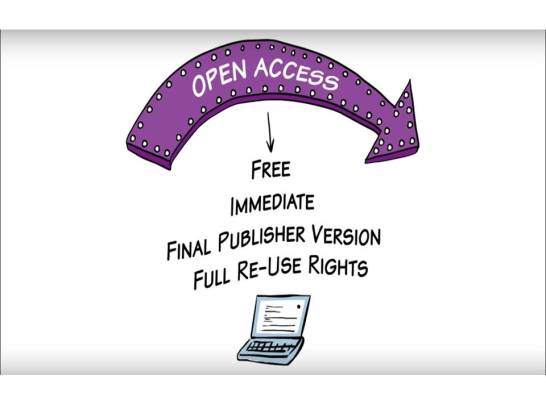 [Source: Screenshot from the above video]
[Source: Screenshot from the above video]
” 90% of online content is expected to be behind paywalls in the next 3 years.”
[The Drum, 2016]
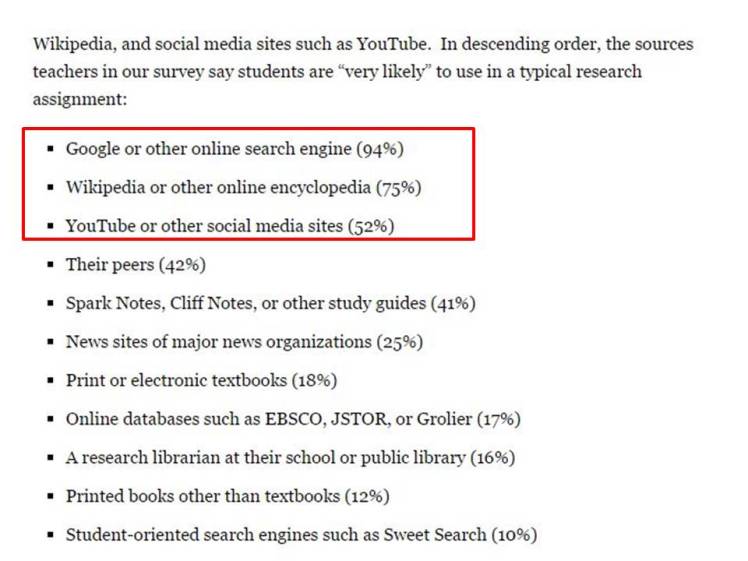 [Source : Pew research center ]
[Source : Pew research center ]
Shown from a research done by Pew Research Center, 94% of students rely on Google or other search engine in their research project. Paywalls put students in a difficult position because this would mean we will have trouble accessing to articles or information not restricted behind paywalls to complete our assignments.
YouTube Red
YouTube allows registered users to upload and have available for the public their videos for viewing for free.
BUT
Google created YouTube Red, a paid monthly subscription service from YouTube that removes advertisements from all videos and other perks, everywhere you watch. Will this put Youtubers career at stake too?
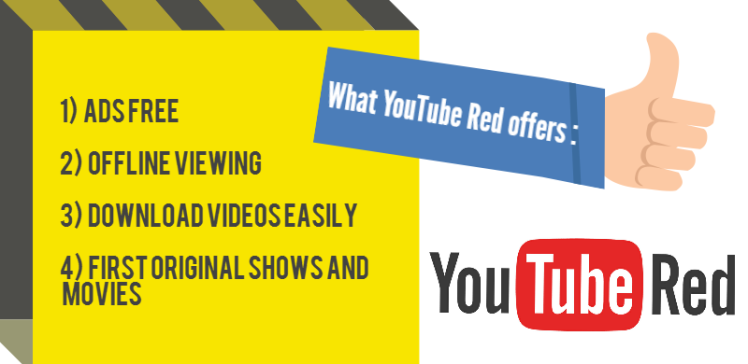 [Source : Image by me]
[Source : Image by me]
Why are content producers making their content paid??

Disadvantages of Open Access :
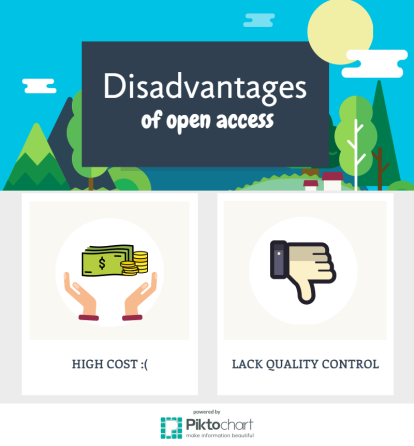 [Source : Image by me]
[Source : Image by me]
Without paying for open access article,authors have to bear publication and research costs themselves. High cost incurred may discourage them from going open access. Also, lac of quality control may arise. As authors are incentives to publish their articles and their main source of revenue comes from publication fee, authors may focus on quantity of the work instead of quality.
Advantages of Open Access :
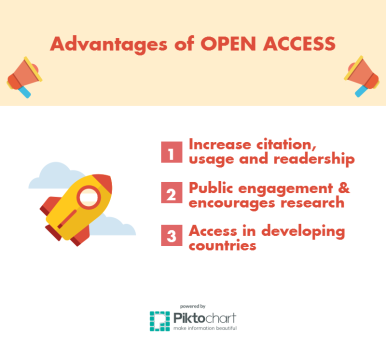 [Source : Image by me]
[Source : Image by me]
The Wellcome Trust reports that open access articles were downloaded 89% more when compared with access-controlled content. Open access articles are free for all, granting the author a much wider range of audiences which would lead to more citations.
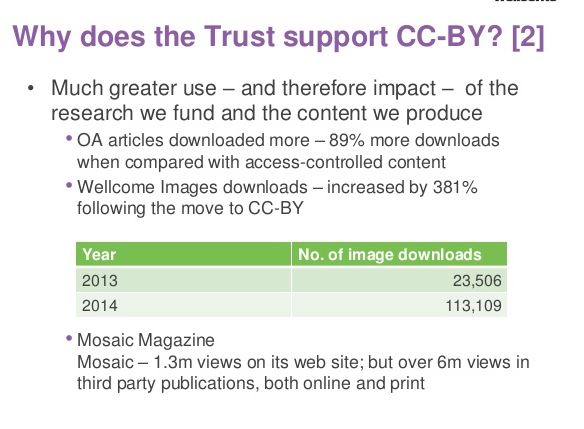 [Source : Welcome Trust Report ]
[Source : Welcome Trust Report ]
When an article has strong public interest and is made open access, it quickly gains engagement from the public as it can be made viral easily. New ideas can be dispersed more rapidly and widely, widening the exposure for readers and encourages more research to be done. It serves as an impetus for knowledge.
Lastly, open access allows developing countries to gain access of these information as well. With this, it provides an opportunity for them to be part of the international research community and allow them to improve and prosper.
In conclusion, although many would prefer open access materials, we should not take this materials for granted. Authors should be treated fairly and be credited for their hardwork. As readers, we should play our part in using open access material ethically and refrain from misusing them.
Here’s a summary of my points 🙂
[ Source : Produced by me ; Powtoon ]
[ Word Count : 420]
References :
- Purcell, Kristen et al. “How Teens Do Research In The Digital World”. Pew Research Center: Internet, Science & Tech. N.p., 2016. Web. 15 Nov. 2016.
- “90% Of Online Content To Be Held Behind Paywalls In Three Years Media Company Survey Suggests”. The Drum. N.p., 2016. Web. 15 Nov. 2016.
- “Forbes Welcome”. Forbes.com. N.p., 2016. Web. 15 Nov. 2016.
- “Benefits For Authors : Open Research”. Nature.com. N.p., 2016. Web. 15 Nov. 2016.
- “Everything You Need To Know About Youtube Red”. CNET. N.p., 2016. Web. 15 Nov. 2016.
- “Advantages And Disadvantages Of Open Access – Pacific Group Of E-Journals”. Pacific Group of e-Journals. N.p., 2016. Web. 15 Nov. 2016.
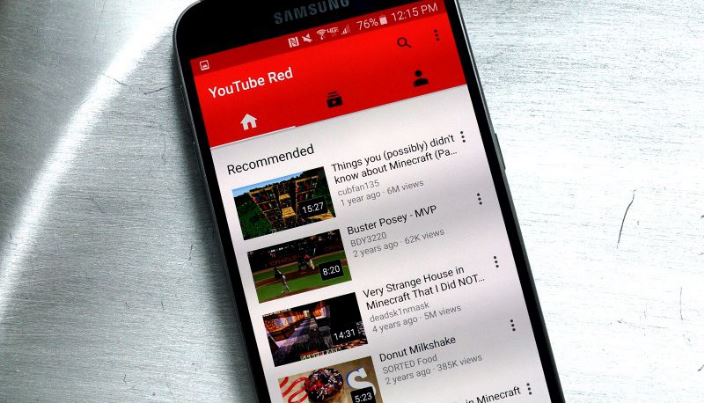
Hi Yang Ting,
The video by Wiley really helped me further understand the concept of open access. I believe that anyone from any industry would prefer open access materials because of the free materials available, especially students who do not have a stable source of income. I agree with you that we should not take these materials for granted and as readers, we have to do our part in using open access ethically and respect the authors whose work we use. With that said, I would like to know what is your stand on this topic now that you know the advantages and disadvantages of open access?
Additionally, there is one part in which I find a little contradicting. Under disadvantages, you mentioned the decreased of quality of articles caused by open access but in the advantages, you said open access encourages more research to be done and might help researchers improve their work. Wouldn’t this mean that more research papers would decrease in quality and as people build on poor articles, it would result in an overall poorer quality of work? Could you possibly enlighten me on this?
Cheers,
Valerie 🙂
LikeLike
Hi Valerie!
Thanks for taking time to read and comment on my blog 🙂
While doing my assignment on this topic, i was stuck in between supporting open access and not. However, as a student, i was a little more bias towards open access. Now that i have read more posts from other classmates, i am more affirmed with my stand that open access brings more advantages than disadvantages.
Sorry i was maybe a little unclear in my post, but what i meant was, having open access encourages researcher or any educator/ students to gain access to more information and data that can aid their research work. With that being said they can then easily decipher between poor quality and good quality work as they have been in contact with many.
Also, researchers can reference check against the credibility to ensure the work is of a certain quality.
I hope I address your question!
Cheers 🙂
LikeLike